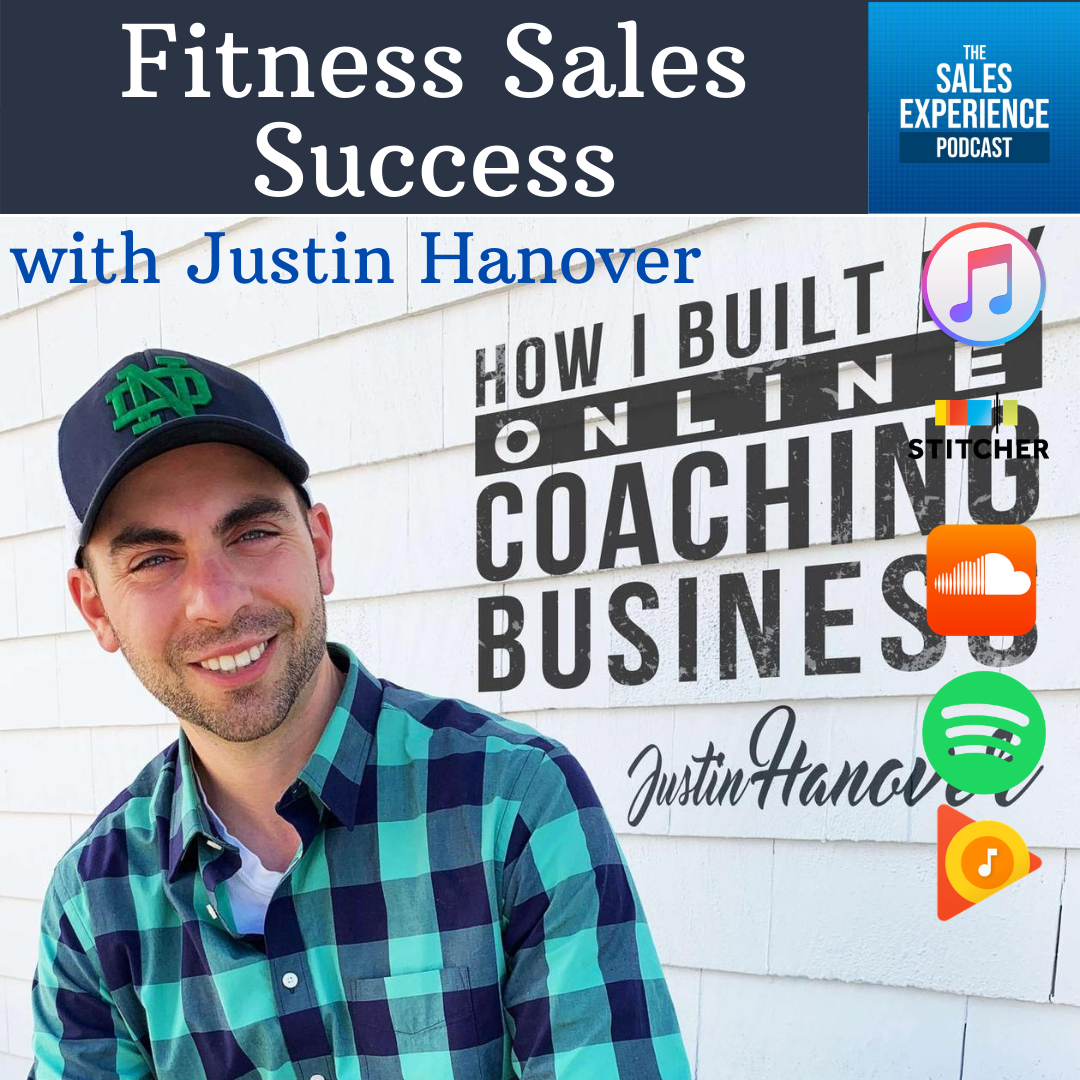Show Notes
This is part two of the conversation I had with Eric.
In Part 2, Eric and I talk about:
- Sales is about educating your customers
- How to lose by prejudging your prospects
- One complaint is too many
- Do you know your Lifetime Value of a customer?
Download The Power of Authentic Persuasion ebook
Enroll in the Authentic Persuasion Online Course
Connect with Jason on LinkedIn
Connect with Eric on LinkedIn
Eric’s Info:
Eric Malka is a renowned serial entrepreneur, business operator and published author with more than 30 years’ experience in the luxury Branded Consumer-Packaged Goods arena.
As co-founder and former CEO of The Art of Shaving he is one of the world’s foremost experts on men’s shaving and grooming, having developed the company from start-up to an internationally recognized men’s grooming brand leader sold in over 1000 prestigious stores worldwide and 150 company-operated US retail shops.
In 2009, The Art of Shaving was acquired by Gillette/Procter & Gamble – Eric was tapped by P&G to continue in his role as CEO through the end of 2010.
Today, as SBI’s Managing Partner Eric shares his vision and experience with his partners and their management teams, working closely with them to pioneer and develop winning strategies that build iconic brands and grow businesses.
Eric’s Links
Website: https://www.strategicbrandinvestments.com/
LinkedIn: https://www.linkedin.com/in/eric-malka-9071529/
E148 – Transcript
Jason: Hey, welcome back to the sales experience podcast. My name is Jason Cutter. Welcome back to part two of the conversation that I had with Eric Malka. If you didn’t catch it and make sure to check out yesterday’s episode, part one where we kind of kick off the conversation. He is a very dynamic and interesting guy and I had a lot of fun talking with him especially because if you watch the video of this, he is a laid back, relaxed person. As you listen to these different parts, you can hear that in the conversation and you get that he’s about people. He’s about corporate culture, about doing the best thing for customers and doing that through salespeople, but just being real and who he is and being authentic. And if you check out the video for our call, when we did this on zoom and then recorded it, he had just gotten back from the gym and I was like, Hey, are you okay with the video? He’s like, I don’t care about that. It’s totally fine. Let’s do it. And so he is just a really authentic person and I really appreciate that. So here is part two and enjoy.
Eric: So we became all about educating guys and basically I used to tell my staff, if I see you selling to a customer, you’re going to be in serious trouble. All you have to do is add value when they’re in your store, when they’re in front of you, you have all this knowledge, you are shaving expert and all you have to do is educate them, find out what their needs are, find out what they’re struggling with and show them the right way. They will invariably buy your products if you do that.
Jason: And I think that’s amazing because I’ve been in retail stores as a customer on both sides, which is, you know, one is I have a need or I don’t even know what my need is, but I have maybe an issue. And you know, I get the education explanation as the products I buy. I leave happy because I feel like I bought some solutions and I have a plan versus going in and I can tell the salesperson has a commission on the line and they’re driven by that. And, or on the other extreme kind of what sounds like your Madison Avenue experience, which is where I walk into a store and I’m also a pretty simple guy and I’m completely ignored because they think I’m not in the demographic of people. We’re going to spend money even if I’m there literally with money burning a hole in my pocket. And so that wide range of kind of customer.
Eric: I was working the store once on the upper East side and um, a guy walked in with ripped sweatpants that must’ve been 50 years old, old beaten up, shoes, sneakers. I mean this guy looked like I should give him a quarter. Yeah. And he brought back a razor that he had bought from us, an expensive razor, you know, probably a hundred or $200. And he said the thing broke off, you know. And I looked at the computer and it was about a year and a half since he bought it. And I don’t even blink. I just tell the guy, listen, don’t worry about it. We’re going to give you a brand new one. It shouldn’t have done that in such a period. It’s past the expiration date for the return, but we don’t care about that. We just want you to be happy. The guy comes back 15 minutes later. So impressed with our level of customer service that he spent a couple of thousand dollars for gifts and I later found out he was one of the wealthiest guys in the neighborhood. So pre-selecting pre-judging people and however, how they dress is such a rookie mistake.
Jason: Yeah, it’s terrible. I used to for fun do that where I would go into stores really looking like when I lived in Santa Cruz, especially a beach town, you know, flip flops, shorts, a tee shirt, go into like jewelry stores or higher end stores and just see who actually paid attention to me and wanted to help for the sake of helping. Sometimes it would take a few hours of finding the right store
Eric: For sure. It’s almost like they don’t want to do business, you know, the, the other thing that I used to be very passionate about is the experience people had Monday came in for a return or a refund. Okay. You know, the customers coming in with already a high defense mechanism and the salespeople don’t like returns and exchanges. So that whole dynamic is so bad for the brand. So we used to teach our people to this harm the customer by saying immediately without knowing what the customer was really looking to return or exchange whether you had a receipt or not, we would say absolutely no problem. We’re going to take care of whatever issue you have with your, and the defense wall just went down and almost nine out of 10 times they would walk away with a transaction with more stuff than they were bringing back. I mean those are simple things that are so counterintuitive for most retailers out there.
Jason: Well and I think that I’m guessing comes from both the customer-centric. Like you have to have happy customers, raving fans that are loyal to the brand and obviously you want to lower that resistance but also an abundance mindset, which is like don’t worry about the people who might be trying to return something they shouldn’t or whatever those issues. Cause I see some brands, you know, retail, consumer, maybe even services where they try to retain people so much cause they’re worried about, you know, people getting one over on them versus kind of like let’s say the Costco model or the Nordstrom model, which is anything you want to return whenever you bought it. Even if you didn’t buy it from Costco. Like there’s stories of stuff you can return to Costco, you know, and then people are super loyal to Costco. Like those are just the margins.
Eric: Scientifically it’s a no brainer. When you do the math, you’re always ahead with that strategy.
Jason: But it’s so crazy how many companies, how many business owners and or sales people just don’t see it that way.
Eric: That’s right. And the other thing is to give your sales people some leeway to make decisions. Do the right thing for the customer. Even if it’s not that good for us. Do the right thing. And you know, basically use your best judgment. You know, if it goes outside of our policy, use your best judgment. Make sure the customer walks away happy. If your judgment wasn’t good, at least we’ll know that going forward we’ll have to deal with your judgment. But just with those cases, people’s judgements are pretty good. As long as they’re not thinking in the back of their head, what’s going to happen to me if the company finds out I did that. Right. You get to give your people full power and support to take care of their customer because it is their customer also.
Jason: Now, did you set any framework or guidelines or guide barriers to like how much you trusted the salesperson? Like you use your own judgment up to this dollar amount or up to these rules? If it’s beyond that, you know, come get me.
Eric: No, I’d rather let them loose and pull them back when they go too far. Yeah, and the only time I really, you know, here’s a story, I had an amazing store manager at Madison. She’s the bang business out the door. Amazing manager. One day I had a complaint from a customer and I came down very hard on the team and her response was, but this is the first time in two years that we have a complaint and my message was that’s one too many, you know, not fail. Even one customer, you know, is basically a little bit of putting on a show if you will. I wasn’t going to do anything radical but I wanted to get the message across. We can’t just have an attitude like you know, of course there’s some crazy people out there and difficult people, but even one customer dissatisfaction was too much for me to bear.
Jason: Well, and that goes back to the experience you’re trying to create and especially in retail and you’re talking obviously mid nineties through, you know, the late two thousands when you had this and you were building this.
Eric: This creates very, very happy, loyal employees. That’s the culture that you’re building on integrity and purpose
Jason: And trust with you saying, I trust you, I trust your intentions. You know the culture, you know the brand. And when you do that, it seems scary for owners a lot of times to trust their salespeople because they feel like they want to control them. But when you control the salespeople and you restrict them, they’re then going to come from a different place when dealing with customers, which is not going to be the best place.
Eric: Look, I’ll tell you, we are in a very high margin category with a very, very high lifetime value of a customer. It would be so foolish. I mean the guy brings me back $150 razor that caused the company 20 or 30 bucks. It’s a no brainer. Give them a new one, give him a re whatever. Whatever’s gonna make this guy happy, it’s going to be paid back tenfold.
Jason: Well, and that’s where I think a lot of businesses and a lot of salespeople don’t understand those two concepts, which is the cost of goods sold, especially if it’s a service, right? There’s very limited costs of goods sold and then also the lifetime value. It’s amazing how many sales people and or businesses I talked to who don’t fully understand the lifetime value of their customers. And then they’re worried about fighting over pennies when literally the lifetime value is thousands or hundreds or thousands of dollars for customer. And it’s like, okay, so what? You know, what does it really cost?
Eric: You know, I have three people, four people working my stores. If one of them is performing poorly, that could mean a difference of hundred thousand dollars at the end of the year. People don’t realize that if they miss an average of $10 per transaction over the course of their career over the year, that could amount to a lot of money. Yeah. You know? Yeah. I think we’re on the same page. It’s being customer centric is good for business.
Jason: So we’ve kind of talked about it where, how you created your sales experience right in this CA, this branding experience, a customer experience. Basically you and your wife literally in this door selling, I mean kind of was that your plan when you started the brand you were like, we need to have this product. There’s a gap in the market. Men just don’t know what they’re doing. And you’re like, okay, let’s have a store and then honey, you and I are just going to stand in the store all day.
Eric: No, my story is very similar to a lot of entrepreneurs were accidental or totally accidental. You know, I’m a serial entrepreneur before the art of shaving, I had maybe four or five different companies with mild success to nice success to failures. So when we started the company, we were just two young people. My wife was 22, I was 28, just moved to New York City to look for opportunities. We knew we were ambitious, we had no money, we had no formal training. And because I was involved with the industry by accident, my wife wanted to start a little business. Then I said, let’s, we can maybe sell my car and uh, get enough money together to open a tiny little store somewhere and I can get merchandise from my, the people I do business with in London. And three months later we were operating a tiny little store called the art of shaving with you know, brands from the 18 hundreds a German street.
Eric: So we had no clue. We didn’t know what, you know, we just pulled triggers without thinking. We were a bit of a, I think we were more ambitious than thoughtful. Then I remember my wife, we’re about a week away from opening this first store and I’m banging on this wood to create a display case and she turns to me and she says, shouldn’t we be looking for an employee to work in the store? And I said, that’s you employee. What are you talking about? You know? So it didn’t take long before we realized we had, we were onto something interesting that had some serious wings and that’s when I became more serious about planning and executing on a bigger strategy.
Jason: That’s it for part two. Thanks for joining. Make sure to subscribe, rate, review the show, catch all of these episodes. If you want to find Eric’s links as well as the transcript of this show and any other shows from the sales experience, podcasts, make sure to go to cutterconsultinggroup.com you can click on podcasts there and find all of that information. And as always, I want to leave you. Keep in mind that everything in life is sales. People will remember the experience you gave them.
![[E148] Customer Focused Sales with Eric Malka – Part 2 of 4](https://episodes.castos.com/salesexperiencepodcast/images/Eric-Malka-Cover-Image.png)


